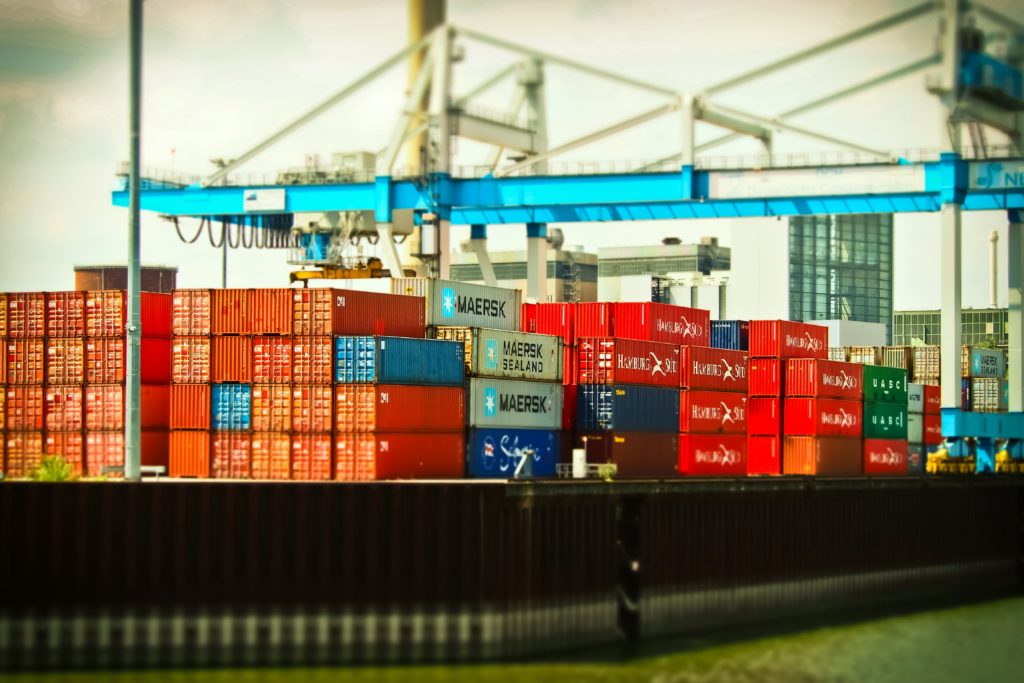GPS systems, temperature-regulated containers, and lane-assist are only some of the technology trends which are impacting the freight industry today. Now, new technology like self-driving vehicles and IoT (The Internet of Things) to further improve the efficiency of their services. Modern technology has begun to replace many of the day-to-day, time-consuming tasks attributed to freight shipping. The technology is meant to keep shippers constantly connected with their shipments from anywhere in the world, to share relevant shipping data with both the company and the customer, and to speed up the overall shipping process. Not only will technology be able to improve efficiency, but it will also make it easier to maintain things like shipment quality, productivity, and low-cost.
Standing up to the Competition
Recently, we wrote a blog post discussing the incorporation of self-driving vehicles into the trucking industry. The technology is years away from being functional even in just the highway setting, and it is unlikely it will be able to handle all the manual and unexpected tasks a driver handles each day on a route. If you consider, however, the partial automation features that could be introduced to the trucking industry, there are many positive possibilities. For example, highway driving miles could take less of a toll on drivers thanks to software such as lane-centering steering and adaptive cruise control. Tools like these are meant to make the route more productive for the driver.
“Now more than ever, it’s important for freight shipping companies to stay up-to-date on these trends and developments to stay relevant.” – FreightQuote
There are also features that can provide real-time information on shipments, including temperature, quantity, location, arrival time, etc. to the driver and shipping company to make maintaining the quality of the shipment even easier. If you can tell customers that their shipment will arrive in perfect condition, you’re providing peace of mind. You’re also supplying high-quality, guaranteed services, which can help you stand apart from your competitors.
The Internet of Things

The Internet of Things has an impact on the efficiency of freight shipping and driver hours. The IoT is the system which connects all devices from microphones to cellphones and airplanes. The physical devices are connected on a network that constantly transfers data back and forth. So how is the IoT relevant in the trucking industry? This is what keeps vehicles, drivers, and dispatchers completely connected and up-to-date with various details about each individual item in a shipment. Just as you scan a box of cereal when it arrives at a grocery store, reaches the shelf, and is sold to a specific customer, every piece of cargo in your shipment is automatically tracked and the information is shared. The information is given in real-time and easily accessible to all involved parties. The IoT can even make driving routes more productive; it can keep drivers informed on the latest fuel-efficient tips, or it could predict when repairs might be required based on previous data taken from other trucks and their repairs.
“Some IoT devices are more mature, such as commercial telematics now used in trucking fleets to improve logistics efficiency.” – Gartner
It’s one thing to simply have a surplus of relevant data; it’s another to properly analyze the data and use it to your advantage. With modern technology, you can do exactly this. Ensure you are keeping up with the latest industry trends and tools to keep your drivers productive, your routes efficient, and your customers informed and satisfied. This is crucial to maintaining your relevance in the world of freight shipping.
Modern Technology at Adcco
Here at Adcco, we’re keeping up with all of the major technology trends. We provide tablets to 5 of our drivers to use in the recording of delivery documents that they can then immediately email to our billing group. In the past, we could only access delivery documents once the driver returned from their trip and they physically handed in their paperwork. Physically handling this paperwork for billing would take over a week’s time. With new technology, we’ve significantly cut down on that. The driver can easily send documents via tablet to our office which allows us to bill our customers on a much more expedient and effective way. In a competitive business environment, real-time billing not only speeds up our cash flow cycle, but our customer’s as well.
We also have a program that tracks all of our equipment electronically, so we can pinpoint a specific trailer or tractor at any given moment. Now, we’re gearing up to provide tablets to all our drivers. Rather than physically tracking and recording data during a route and handing it in when the route ends, drivers can now use tablets to help efficiently track relevant information and share it. Not only will this reduce route times, but also it allows you to find the data you need on your shipment, at any time, from anywhere.

